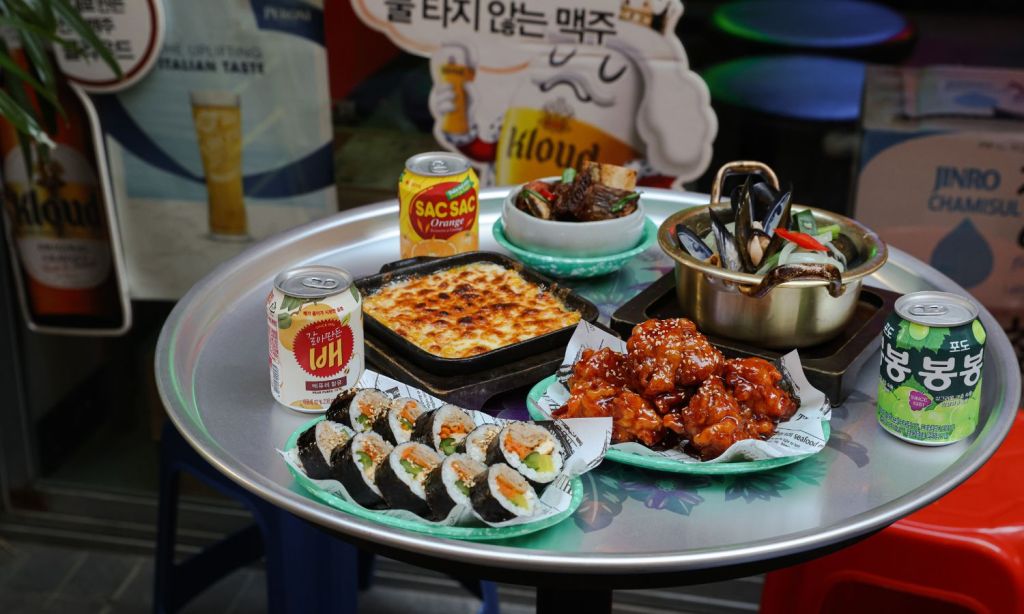Pochas play a key role in Korean culture. Short for ‘pojangmacha’, They’re Korean street food stalls serving comfort food and snacks and alcoholic drinks. They come alive at night with people eating, drinking and socialising. You can find rows of pochas at one of Seoul’s biggest markets Gwangjang Market, serving the likes of bulgogi, kimchi pancakes, tteokbokki, skewered fish cakes, bibimbap which you can wash down with Korean beer or soju.
I’m noticing more and more pop up around Australia. Sydney has Kwang Jang Pocha in Darling Square and Sil Bi Jip in Sydney Place while Melbourne has Seven Star Pocha in the CBD and Pocha Pocha in Doncaster. Perth’s got Train To Pocha and Brisbane has K-Pocha.
“Food in Korean culture goes beyond just sustenance,” says Irene Lee who co-owns Kwang Jang Pocha with her husband Danny Hwang. “It is deeply intertwined with social relationships, hospitality and expressing care and affection. It is what brings a sense of community.”
As Dennis Oh, founder of Sil Bi Jip, puts it pochas are about culture, community and connection. They also emphasise affordability and there’s a real energy they create.
“Sharing food is such an important part of Korean culture and pochas are the lifeblood of our dining scene,” Oh says. “They provide a casual and accessible place for people from all walks of life to celebrate or commiserate with loved ones over a comforting meal, creating a sense of community.”
So what’s the ambition behind some of these recent openings?
The founders of Sil Bi Jip and Kwang Jang Pocha aimed to recreate the atmosphere of pochas in Korea. In Sil Bi Jip’s case, Oh wanted to create a place for people to connect, be nourished and have fun without breaking the bank. He says more pocha-influenced venues open in Australia is happening for a few reasons.
“Firstly people are seeking more affordable options for quality, nourishing comfort food – particularly in winter,” he says. “Pochas also resonate here because there’s such a shared appreciation of food as a means to bring people together and create a community. The social aspect is an integral part of dining in both Australia and Korea.”
“There’s also been a growing interest in Korean culture sparked by films, music and cuisine. People are eager to experience the authentic Korean dining experience that pochas offer.”
Hwang of Kwang Jang Pocha says he’s also seeing diners come in wanting to sample more Korean food.
“Korean restaurants tend to serve large portions at higher costs but we wanted to give people more affordable and smaller options,” he says. “This way they can example different foods they’ve never tried before and enjoy all their favourites too.”
“Pochas provide a place where people can gather and share food and drink and make happy memories together,” Hwang says.
Related: What’s Behind the Korean Cuisine Boom in Sydney?
Related: What You Should Never Do in a Korean Bathhouse
Read more stories from The Latch and subscribe to our email newsletter.

